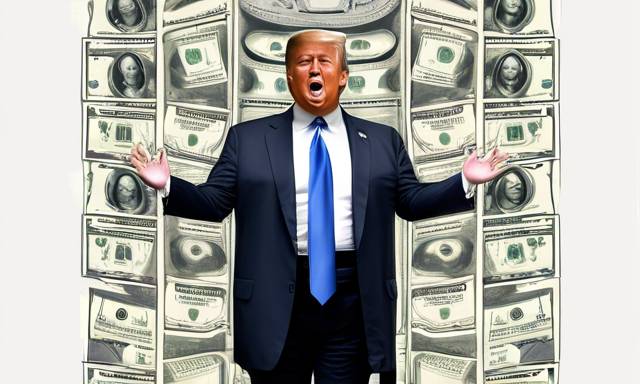Impacts of Trump’s Economic Plans on U.S. Debt and Consumer Costs 💰
Recent studies indicate that the economic proposals put forth by former President Donald Trump could significantly increase national debt while escalating costs for a majority of Americans according to an analysis covered by Andrew Duehren and Alan Rappeport in The New York Times (NYT). What’s more, these findings shed light on the distribution of benefits and burdens imposed by Trump’s fiscal strategies.
Exponential Growth of National Debt 📈
The Committee for a Responsible Federal Budget (CRFB) predicts that Trump’s economic initiatives could contribute up to $15 trillion to the national debt within a decade. This estimate is nearly twice that of Vice President Kamala Harris’s projected increases, which are estimated at around $8 trillion.
Moreover, a detailed assessment from the Institute on Taxation and Economic Policy (ITEP) highlights that the tax and tariff strategies proposed by Trump would likely benefit wealthier citizens at a greater rate, thus leading to higher expenses for the general population. The joint findings of these studies reveal a potential regressive outcome of Trump’s policies, suggesting an increased financial strain on lower-income families.
Immediate Financial Impact on Lower-Income Households 💵
The NYT outlines that the CRFB’s research zooms in on the long-term repercussions of both candidates’ fiscal proposals, while the ITEP concentrates on the short-term ramifications of Trump’s tax alterations and tariffs set for evaluation in 2026. It becomes apparent that these strategies might create a heavier economic load for households earning less.
- Trump proposes broad tariffs impacting nearly all imports
- 60% tariffs on Chinese imports
- Potential 20% tax on all imports
Trump’s tax strategies also include exemptions such as overtime pay, tips, and Social Security benefits. The NYT warns that these exemptions could allow affluent individuals to exploit potential tax advantages. While cuts in taxes can benefit various income levels, the adverse effects of the projected tariffs would inflate the prices of essential goods and services, thus disproportionately affecting lower-income individuals who allocate a significant portion of their income to necessary expenses like food and clothing.
Consequences of Tariff Implementation 🏷️
The CRFB has estimated that Trump’s proposals could inflate the U.S. debt significantly, with projections indicating a possible $7.5 trillion increase in a scenario less severe than the upper estimate. On the flip side, Harris’s plan is characterized as “deficit neutral,” which suggests it would not contribute to the current debt levels.
A crucial issue highlighted by the NYT arises from Trump’s tariffs, which can induce heightened expenses for American consumers. The ITEP points out that the poorest 20% of American earners might confront an additional financial burden of 4.8% of their income due to these tariffs, in stark contrast to tax reductions enjoyed by the wealthiest 1%, averaging around $36,320 annually.
Consumer Pricing and Economic Arguments 🔍
While Trump asserts that his tariff policy would mainly influence foreign enterprises, numerous economic analyses indicate that such expenses are generally transferred to American consumers. The Trump administration maintains that these tariffs would serve to diminish the deficit through revenue generation. Notably, as mentioned in the NYT, neither Trump nor Harris have prioritized deficit reduction in their campaigns, focusing instead on tax reductions and increased expenditures.
The rising national debt, which is approaching $36 trillion, has already necessitated interest payments that exceed allocations for military and social welfare programs according to the NYT’s findings.
Hot Take 🔥
As the elections draw near, understanding the economic plans proposed by candidates is crucial for voters. The ramifications of these fiscal strategies could significantly reshape the landscape of public finance and the costs of living for countless Americans. As these candidates put forth their visions for the economy, the balance of financial accountability versus spending initiatives will be pivotal in determining the economic health of the nation moving forward.





 By
By
 By
By
 By
By

 By
By